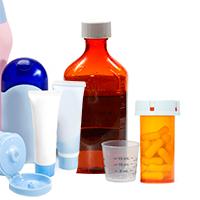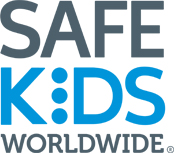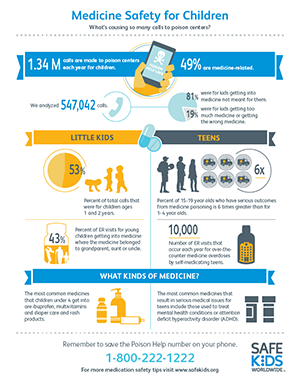New Research on Medicine Safety for Children

Moms, do you keep medicine in your purse? Parents, do you have diaper rash cream within arm’s reach of the changing table? Have you ever shared medicine with a friend, like painkillers? Or missed a dose of a medicine so you took two to make up for it?
It’s instances like these that result in 1.34 million calls to poison centers for children each year.
New Research
Poison Prevention Week is March 15 – 21, and Safe Kids is releasing new research, “Medicine Safety for Children: An In-Depth Look at Calls to Poison Centers,” to explore medicine safety for children. In partnership with the American Association of Poison Control Centers, and with support from McNeil Consumer Healthcare, we analyzed more than 547,000 calls to poison centers to better understand what types of medicines little kids and teens are getting into and how it happens.
Infographic
We’ve created a new infographic that presents the key facts from the research in an easy-to-understand style.
Gary on the Street
Our own Gary Karton takes to the streets to talk to teens about the poison help line.
Safe Storage, Safe Dosing, Safe Kids
Safe Kids created the Safe Storage, Safe Dosing, Safe Kids video which serves as a great reminder of medicine safety tips.
Poison Center Congressional Action
Poison centers answer an average of more than 1 million calls every year about children who have been poisoned, but Congress is cutting the small amount of federal funds poison centers are authorized to receive.
Safe Kids has set up an easy way for people to e-mail their members of Congress and ask them to preserve funding for poison centers. Just enter a zip code and it will pull up a pre-written e-mail that you can click and send to your representatives.
Medicine Checklist for Parents of Pre-Teens and Teens
We know it can be hard to talk to older children about safety tips. Here is a checklist that includes the important things to talk about with your pre-teen or teen.
Top Tips
Top Tips for Parents of Little Kids Ages 5 and Under
- Put all medicine up and away and out of sight, including your own. Make sure that all medicine and vitamins are stored out of reach and out of sight of children. Consider places where kids get into medicine, like in purses, counters and nightstands.
- Consider products you might not think about as medicine. Most parents store medicine up and away - or at least the products they consider to be medicine. You may not think about products such as diaper rash remedies, vitamins or eye drops as medicine, but they actually are and need to be stored safely.
- Use the dosing device that comes with the medicine. Proper dosing is important. Kitchen spoons aren't all the same, and a teaspoon or tablespoon used for cooking won't measure the same amount as the dosing device.
- Write clear instructions for caregivers about your child’s medicine. When other caregivers are giving your child medicine, write clear instructions about what medicine to give, when to give it and how much to give.
Top Tips for Parents of Big Kids Ages 6 to 10
- Teach your child that medicine should always be given by an adult. It’s important for kids to know that they should not take medicine on their own. Parents and caregivers can help make sure they are taking it correctly.
- Don’t refer to medicine as candy. While saying medicine is candy may make it easier to get your child to take medicine, it may encourage them to try it on their own.
- Take the time to read the drug facts or prescription label with your child, even for over-the-counter (OTC) medicine. As your kids get older, it’s important to teach them how to read and understand the label before taking medicine.
- Model responsible medication behavior. What kids see us doing is a much stronger message than what we tell them to do. Make sure to store medicine out of the reach of children, read drug facts and prescription labels before taking medicine and follow the recommended dose.
Top Tips for Parents of Pre-Teens and Teens 11 and Up
- Educate pre-teens and teens on how to read an over-the-counter drug facts or prescription label. Take the time to teach your child about each section of a drug facts label and its purpose. For a great resource on this topic, visit: http://bit.ly/18xpWLB.
- Communicate to pre-teens and teens the importance of only taking medicine that is meant for them. Taking medicine that belongs to someone else or misusing medicines (even OTCs) can cause harm.
- Teach pre-teens and teens that medicine labels are rules, not guidelines. Be sure they knows that taking more than the recommended dose will not help them get relief any faster, and it could hurt them.
- Check in with then and talk about medicine they are taking regularly. Even pre-teens and teens who need to take medicine daily may make errors in dose or dosing frequency, so it is important to communicate with them regularly about taking medicine responsibly.
Top Tip for Everyone
- Save the toll-free Poison Help line number in your home and cell phones: 1-800-222-1222. You can also put the number on your refrigerator or another place in your home where babysitters and caregivers can see it. And remember, the Poison Help line is not just for emergencies, you can call with questions about how to take or give medicine and concerns about other potential dangers, including reactions to plants and mushrooms, bites and stings, chemicals, carbon monoxide, pesticides, and more.
Learn More
For all of our medicine safety tips, click here.

